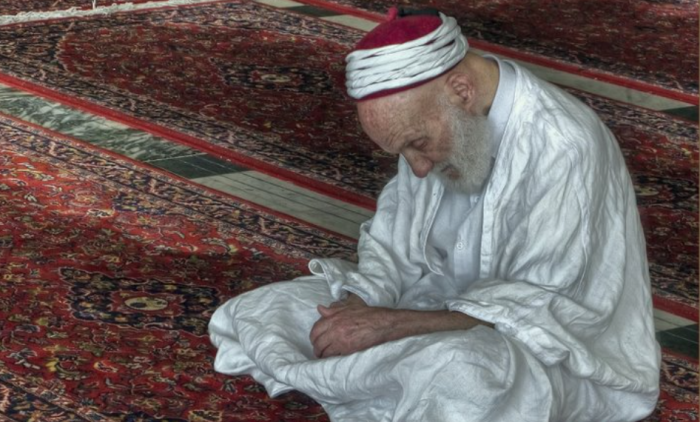Lately, I have had an unwanted visitor.
He never sleeps, rousing me in the middle of the night, and distracting me in the middle of the afternoon.
He first came by after one of my friend’s sons died earlier this year. His voice became louder after a friend died of COVID-19 on my birthday at the end of January. Louder still, he rattled me when my cat got sick and almost died recently, and though I nursed her back to health, I can hear his whispers in my ears whenever life’s activity wanes.
I want to ignore him, to run away, and to pretend that he doesn’t exist. He is just so heavy.
He has interrupted my life: squelched my ambition, drowned my passion, and darkened my countenance. He seems so out-of-place in this fun, creative, fascinating, fabulous life I am building. He exhausts me and makes mere day-to-day survival a Sisyphean task.
I am afraid of him, afraid of letting him in. I’m afraid that if I do, he will stymie everything I have worked so hard for. I am afraid if I let him in, he will take over. He will control my life and make it a constant deluge of pain and regret.
So I close myself to him, blocking out all emotion just to get through the days. But the longer I close myself, the longer he lingers. He is — it turns out — not just a visitor, but a messenger. His message — I know — is potent and bittersweet, and it’s going to transform me, transform my life. The change comes upon me like a rising tide, and I am immobile in my repression.
I don’t want change, not like this. But I don’t want to drown. He wants me to float.
I am reminded of Rumi’s sweet, succinct message, in his poem “The Guest House”:
This being human is a guest house.
Every morning a new arrival.
A joy, a depression, a meanness,
some momentary awareness comes
as an unexpected visitor.
Welcome and entertain them all!
Even if they’re a crowd of sorrows,
who violently sweep your house
empty of its furniture,
still, treat each guest honorably.
He may be clearing you out
for some new delight.
The dark thought, the shame, the malice,
meet them at the door laughing,
and invite them in.
Be grateful for whoever comes,
because each has been sent
as a guide from beyond.
~ Jalaluddin Rumi, translation by Coleman Barks
And so, remembering this timeless wisdom — which is branded in my soul’s matrix, somehow — I open the door to him, just slightly. I open the door to the powerlessness, the loss of control. The not knowing, the pain. The woundedness and the realization of the finality of loss. And though I know I shouldn’t let myself get lost in these emotions, I know that letting them consume me, wash over me, tear me apart and make me anew, is the only way to the other side of this, if there is one. I am reminded of what another teacher imparted to me: everything is the path.
Allowing him, I realize he is not only a harbinger of pain but of joy, of a deepening realization of the love within my soul. Within him exist — as conjoined twins who share the same heart—grief, and gratitude. Separate entities but utterly and entirely dependent on one another. The deeper the grief, the more is allowed, the more profound the gratitude. Losing someone or something can tear us apart, but it can also show us our true nature: how much, and how deeply we love. It can show us the truth, as almost nothing else can.
Grief is a journey into the underworld, and as I process the losses of the past year, I know there are no simple or easy answers. I know that loss in life is unavoidable and that even with a spiritual perspective, it is still painful, heartrending, and lonely. But though physical existence is finite, maybe the love we feel is not, and maybe this is one lesson that grief has to teach us. And that learning about love, even through loss, is one of life’s most profound teachings.
~







Read 18 comments and reply